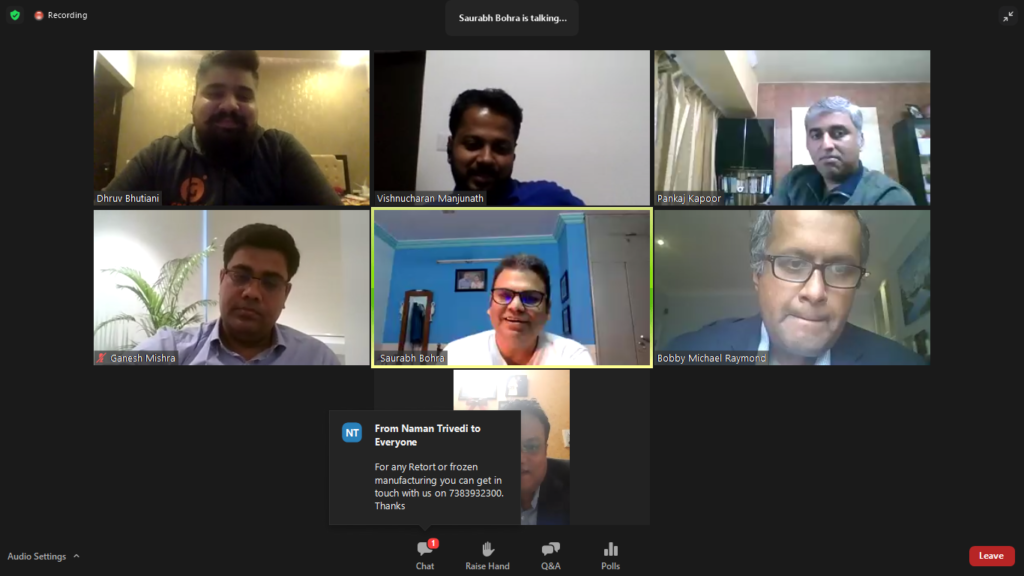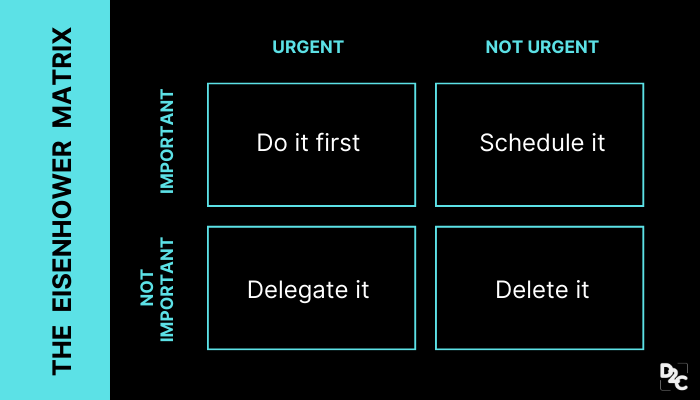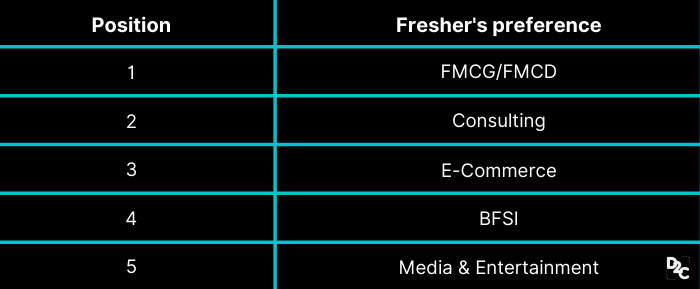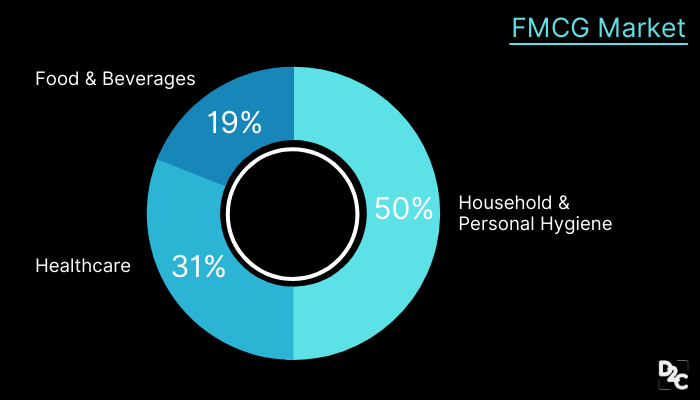Master top 10 selling skills to build successful career in fmcg industry
What are the top most important skills needed to sell the product?
Sales and marketing sector is enormous, with various divisions and departments in need of almost every skill set.
So choosing over a career in Sales Management (particularly in FMCG), you need to get started with the basics.
Do you want to get better at sales?
Build up your sales resume so you could land a higher-paying sales job with generous compensation?
There are certain hard and soft sales skills you need to master, and of course, back it up with increased revenue numbers credited to your performance.
The top sales representative skills you need to master if you want to achieve complete sales enlightenment.
Modern “selling” sales organizations have grown in complexity and have evolved into a roster of functions — such as marketing, business development, closing, account management, and customer success — that require different specialized skill sets for their respective teams.

What are the skills required for successful selling?
What Are Hard Skills In Sales?
Hard skills for sales are formal and technical abilities learned from academic institutions, workplaces, seminars, mentorships, and training courses, including role-critical skills that are specialized for a specific function.
Soft skills, on the other hand, are informal abilities that are learned over a person’s lifetime and usually relate to the person’s aptitude in performing common tasks and connecting with other people.

What Are Qualities of a Good Salesperson?
These broadly refer to a person’s mindset, attitude, and behavioral tendencies. While the boundaries between skills and traits sometimes become hazy, we try to avoid these cases to maintain clarity.
We list the top sales skills and essential traits we believe sales professionals need to excel in their fields and outperform their competition.

What Actually Makes a Great Sales Rep?
Many books, articles and studies have attempted to identify the characteristics of a high-performing salesperson, but consensus has yet to be achieved.
Many agree on a few indispensable skills but otherwise recommend disparate skill sets and desirable qualities. We found at least 30 common denominators and listed the sales skills you need to master — and to put in your resume to level up in your sales career.
Here are 10 attributes of a great sales person:
1) Passion. This is also one of the top qualities of a master closer and the only one that can’t be taught. Without a passion for the home building industry, it’s impossible to lead and inspire a team, Tarullo says.
2) Integrity. Combined with passion, these are the two most important qualities for a sales manager. “They need that core,” Tarullo says. “If they don’t have those, they shouldn’t be in sales management.”
3) Positive attitude. It’s up to a builder’s leadership to put smiles on the faces of the sales team and set the tone for the company.
4) Coaching. Seventy percent of a sales manager’s time should be spent coaching, either in groups or one on one, Tarullo says. Any sales manager who says the workload doesn’t allow that kind of time with the staff needs to examine how the day is being spent and ditch or delegate any activity that doesn’t affect lead generation or conversion.
5) Leadership by example. “The sales manager should be out on the sales floor with his people,” says Jim Capaldi, director of sales for the Ventura division of Standard Pacific Homes and author of The Ultimate New Home Sales Success Manual. “That’s where you’re most productive. Lead by example, make them accountable, push them, and get them out of their comfort zone.”
6) Loyalty. Sales managers need to go to bat for their sales team members, says Debbie Dompke, sales manager for Chicago-based Lexington Homes. “Let them know you’re on their side,” she says. “When they know you’re sincere, it’s amazing the work ethic you’ll get in return.”
7) Availability. Dallas-based sales trainer Bob Hafer says paperwork has to be done, but it can’t be used as an excuse “to not do the tough stuff.” It’s easier than dealing with people, to be sure, he says, adding, “Administrative tasks never talk back to you.” When he was a sales manager, he got to work at 7 a.m. and spent two hours on paperwork before the phone started ringing. Then, when the sales centers opened, he was available to work with his sales teams in the field.
8) Motivation. This includes encouragement and recognition. Dompke says she does this in “so many ways—contests, games, dancing, singing, dressing up. You laugh together and play together.”
9) Continuous learning. Doctors, accountants, attorneys, and other professionals keep learning their whole lives in order to keep their skills up to date. Sales managers need to do likewise. “When you don’t grow,” Capaldi says, “you leave the door open for someone else.”
10) Listening and communication. This is an underpinning for most of the other qualities. You can’t be a good coach or motivator if you’re not a good communicator; and you can’t continuously learn, lead by example, or demonstrate loyalty without being a good listener.
“Years ago, the sales manager’s job was about paper management, organization, and managing the interest lists,” Capaldi says. “Now, it’s about keeping the sales team accountable, motivated, and focused on the basics of selling. I always preach to people that real estate sales is the hardest job to be good at and the easiest job to fail at.”

What Sales Skills Should I Put On My Resume?
List of 30+ sales skills you need to master to become a top performer who generates consistent revenue and vault yourself to the top of the totem pole in the sales field.

Soft Skills For Sales Professionals
1) Relationship-building
The ability to positively engage other people, build long-term relationships, and form mutually beneficial networks will find frequent use in any salesperson’s workflow.
From meeting clients and gathering referrals to soliciting advice and achieving team objectives, relationship-building skills enable a salesperson to accomplish tasks easier and make better-informed decisions.

Relationship-building involves trust, rapport, and a genuine desire to help other people.
Relationship-building leads to relationship selling, so don’t think it’s just a bunch of fluff.
This creates opportunities if you play your cards right!
2) Knowing When To Shut Up That’s right.
Shut up and listen! Listening is the best method to understand where clients are coming from, what their pain points are, and how you can effectively provide solutions for their challenges.
Without listening skills, a sales professional risks compromising other stages in the sales process such as lead qualification and customer-solution matching.
3) Time Management While selling involves money, something a lot more precious gets exchanged and utilized along the way — time.
Your client’s time is important. So is yours.
A salesperson’s ability to optimize time improves productivity and cost efficiency, creating the environment needed for high performance.
This soft skill coupled with software automation, analytics and other technologies delivers significant ROI for any business.
Pro Tip: Become a Google Chrome powerhouse by learning how to use these Chrome Extensions to maximize sales productivity and efficiency!
4) Storytelling Selling not only requires showing the features of your product but also convincing customers that these features will solve their problems or will benefit them in some significant way.
In most cases, you need to articulate your message by telling a story that deeply resonates with your target audience.
A lack of basic communication skills is a glaring red flag for anyone planning to enter the world of sales.
5)Research/Information Gathering Accurate information about clients, market trends, rival solutions and other business intelligence enables a salesperson to make better decisions, engage the right customers better, and close high value deals while shortening the sales cycle.
Your CRM, competitive analysis tools, rival websites, and social media are great places where you can start your research.
6) Critical Thinking/Problem Solving Having an ocean of data is hardly enough to get you anywhere, however.
You still need critical thinking skills to process information, analyze disparate data, and sift through the heap for relevant bits of information that will help you formulate solutions for problems your prospects or your team are experiencing.
7) Affinity with Technology Tomorrow’s sales professionals must at least be comfortable around digital devices.
This makes it easier to adapt to emerging technological advances in AI, big data, and other fields that will transform the way organizations run businesses and the way brands engage audiences.
8) Collaboration Sales teams rarely operate as a one-person army.
Hence, the ability to align one’s personal goals, workflows, and schedule with those of others is an important skill for sales professionals.
Sales teams follow a game plan that assigns different roles and requires different outcomes from members.
Most of these roles and outcomes are dependent on each other for collective success.
That means the lack of teamwork and flat leadership will likely lead to unwanted outcomes and missed objectives.
Hard Skills For Sales
Professionals

9) Product Knowledge Inadequate product knowledge is unacceptable in the world of selling.
Any sales professional who goes to the field without having an intimate knowledge of the features, benefits, and weaknesses of their product will have a hard time creating effective pitches and connecting customer needs to the best solutions available.
Deep and extensive product knowledge is a prerequisite to high sales performance.
In addition, demonstrating that you are a subject matter expert generates trust among your customers.
10) Strong Knowledge of Common Business Software & Sales Enablement Solutions Sales ops and sales enablement technology — through products such as CRMs, document management software, and workplace productivity apps — makes selling easier and more profitable.
Sales professionals should learn how to use the software, platforms and other tools their organizations use to run operations and engage customers.
11) Business Communication Your talent at engaging prospects during the sales conversation or articulating a concept can still be honed for the business landscape.
It is imperative that sales professionals learn the best practices in both oral (e.g., phone calls, presentations, pitches, etc.) and written (e.g., proposals, memos, referral requests, etc) communications.
This will help you become more effective at connecting with clients and making a positive impact in how they perceive your brand.
12) Client Engagement Getting along with people and having good communication skills are baseline traits.
For high-performing sales professionals, there is a science and a method for establishing and maintaining excellent client engagement.
For example, there are sales call techniques that can help you build rapport with a prospect, research methods that will help you glean valuable information about a customer, and communication techniques that will allow you to nurture long term relationships with clients.
13) Active Listening There are different levels of listening but you need to operate at full throttle when it comes to your customers.
Active listening in sales requires focus as well as occasional/follow-up queries. These allow you not only to glean complete and clear information from your clients but also to build rapport and demonstrate that you genuinely care about their concerns.
14) Conflict Management and Resolution In sales, expect to encounter regular episodes of complaints, conflicts, and rejections.
These incidents may involve just about anyone, including clients, peers, management and other parties. Because these can occur at any time, sales professionals need to learn and practice how to proactively handle objections and manage conflicts.
High-performing salespeople have been known to use these incidents as a platform for converting new leads or an avenue for demonstrating a workplace solution to management.
15) Sales Presentations & Sales Demos In the beginning, there was PowerPoint.
Whatever app or software tool you use, being good at presenting and public speaking is a great skill to have in the world of selling.
Excellent sales demos & presentations convey subject mastery and build trust around your brand.
For B2B sellers, conducting a lively and compelling demo is also a requisite skill.
16) Social Media & Social Selling Because social has become a major part of our digital lives, many companies now employ social media managers to oversee their brand’s online presence.

You need not be as technically adept as these specialists but you need to know your way around social media. For B2B sellers, knowing the best practices and tricks for engaging prospects on LinkedIn, Twitter, Instagram, and other networks will help bolster your lead generation and conversion efforts.
Role-Critical Skills For Sales Professionals
17) Prospecting Prospecting helps you fill your customer pipeline with entities that may be interested in your product.
The selling process practically starts at this stage. This skill is a staple across all roles but is critically important for sales reps.
18) Lead Qualification This skill allows sellers to gather and analyze information about a prospect that will show them which available solutions or product features directly addresses a prospect’s pain points.
It may also indicate whether there’s a mismatch between your product and the prospect, allowing sellers to save time by referring the prospect to other solutions providers and focusing on the next lead.
19) Contract Negotiation Selling is easily the art of negotiation. Because of its relevance to any field, negotiation skills may as well be classified in any of the categories we listed.
However, contract negotiation is especially important for closers, account executives and managers. Contract negotiation involves establishing a climate where your company and your prospect can set mutual expectations and benefits.
Managing the Sales Negotiation Process Like a Pro

20) Policy Knowledge Sales directors, managers and other leaders are required to be extensively aware of their organization’s governance and policy issues.
Policies are tied with a company’s vision and its strategic goals, serving as standards within which sales teams operate.
21) Referral Marketing Collecting qualified referrals is one excellent way of keeping your pipeline humming with new leads.
This skill is especially important for sales reps.
22) Closing Skills This skill may well represent the essence of selling, encapsulating the moment when a prospect finally realizes, accepts and buys (literally) the rationale behind your product.
Closing sales deals should be a staple across the sales organization but the task of closing is often assigned to more senior sales reps and account executives in larger companies.
23) Client Nurturing AKA Customer Success Many businesses realize that making a sale doesn’t necessarily terminate the buyer journey. Depending on your product or service, you can still offer additional value and generate more business with existing customers. The trick is to provide VIP treatment and excellent customer service to your paying customers. While separate customer success departments handle much of the heavy lifting, some smart sales organizations assign post-sale relationship management tasks to account managers or customer success leaders.

Top Traits of Successful Salespeople
24) Self-Motivated/Ambitious Call it grit or toughness, self-motivated and ambitious sellers can work under pressure, take rejections gracefully, then bounce back and still beat expectations compared to less motivated peers.
25) Trainable, Coachable, Open to New Ideas Sales is evolving and sellers who refuse to relinquish outmoded practices will fall by the wayside. Salespeople must embrace change and be willing to learn new ways of doing things in order to succeed in the business landscapes of tomorrow.

26) Adaptable Adaptability is a survival mechanism not only in nature but also in the world of sales. Tools have changed and so have customer demographics. There are new engagement channels to explore. Smart sales professionals know they need to sail the currents of change to get to their destinations.
27) Sociable Gone are the days when lone wolves ruled. The workplaces and the sales deals of tomorrow will be driven by teamwork and collaboration. Smart sellers need to be sociable at all levels.
28) Responsible Top sellers own their mistakes and hold themselves responsible for their performance. They never make excuses nor point fingers when things don’t happen as expected.
29) Goal-Oriented Excellent sales professionals are motivated by the notion that: There’s an ambitious goal to be reached. It is an attainable goal. Achieving it feels incredible. There’s a reward at the finish line. Given this mindset, these sellers will exert all effort to meet or surpass targets. Top-notch sales leadership is the driving force behind building highly motivated, goal-oriented sales reps.
30) Empathetic Successful sellers are almost always buyer-centric. They might be proud of their products but they’re more concerned about helping customers solve problems. These sellers have well-developed empathy that enables them to understand where clients are coming from and determine their pain points.
31) Passionate About Selling Even more potent than grit or ambition, a passion for selling may well be the top trait for sales professionals.
Doing what you love will simply compel you to excel in your field and achieve success consistently.
If you are a visual learner, check out the Complete List of Sales Skills and Traits Infographic.

In sales organizations, professionals also compete as teams or as individuals.
With gamification becoming more fun and performance metrics becoming more accurate, sellers can better assess their strengths and deficiencies and make remedial measures to bolster their credentials.
You can identify which sales skills you need to learn or train to get to the next level.
The right selling skills listed on your sales resume will advance your career and get you to the next success milestone.
You can check your organization’s knowledge base or inquire whether any of the upcoming training programs are good for you.
There might even be a mentor willing to coach you into shape.
You can also take an online course or enroll in a brick-and-mortar college. Any which way you choose, the bottom line is this: never stop learning!
How to List Sales Skills On Your Resume There are a few options on how to go about listing sales skills on your resume for your next sales job.
Basically, you can either weave them into your professional experience section, especially when describing the sales results you’ve achieved in your previous jobs. Or you can create a separate “Skills” section and explicitly list your selling skills there.
To identify your best skills, or the skills you want to highlight the most, you’ll want to reflect on your past experience and ask your peers.
There are a few ways of going about that: If you received any awards, note what particular skills helped you get them.
Ask former coworkers for strengths that you may not recognize in yourself.
Talk to other sales professionals, particularly in the field you are interested in.
Planning a successful sales day becomes essential when you have huge targets to meet.
Planning a successful sales day is highly dependent on prioritizing tasks to be done throughout the day.
The Priority List:
Importance vs. Urgent Matrix, wherein tasks are classified as
P1:“High importance, High Urgence
P2: Low importance, High Urgence
P3: “High Importance, low Urgence
P4: “Low Importance & Low Urgence.
Tasks with the highest priority are given due time and effort. At times it is okay to put off P4 tasks onto the next day. It is not possible to get everything done immediately.

How do you master sales skills?
What is sales management?
Sales management involves maintaining trade relations by means of ensuring,
- sustainability and financial growth of the trade partners,
- the widespread availability of products,
- training and motivating sales staff,
- coordinating operations across the sales department, and
- implementing a cohesive sales strategy that drives business revenues.
It also involves ensuring better distribution of products in the geography than the competition and innovating new-age methods to reach customers to remain relevant in these changing times.
What is it like to take up an FMCG sales job after an MBA?
As per the D2C Campus Employer Branding Report 2021, FMCG and Consulting stayed on top of B-School students’ preference list in terms of the sectors they would like to work for. Another trend reflected that freshers prefer the FMCG sector the most, pushing the Consulting sector down to second place!

Consumer goods companies like ITC, Nestlé, Hindustan Unilever feature as dream recruiters at Indian business schools. Big FMCG recruiters are exploring geographies to hire top talent for various domains, including Sales and Marketing from top B-Schools with fat-pay cheques.
Taking up an FMCG Sales job after MBA thus seems a promising career choice. You get,
- To work for an industry full of big brands
- Good salary package along with great learning
- An opportunity to progress your career very quickly
- To succeed basis your skills, instead of your qualifications (since it’s a results-based industry)
- Bright chances of having a global career
- More experience in less time
How is career growth in FMCG sales?
If you have sales experience in FMCG, you are already on the path to a successful career. Because you get to learn about brands, consumers, markets & competition in the most effective way.
“Career growth in FMCG is steady, and you’re rewarded for the kind of performance you give. So it’s very linear, and you’re sure to be rewarded for patience and efforts”, says Nishant Sharma.
Moreover, FMCG is the fourth largest sector in the country. Household and Personal hygiene account for 50% of the total FMCG sales, whereas Healthcare for 31% and food & beverages approximately for 19% of the overall FMCG market.
In addition, the revenue in the FMCG sector is poised to double from 5-6% in fiscal year (FY) 2021 to 10-12% in FY22 as per the reports by CRISIL.
So, the overall FMCG sector is projected to show upward growth. Now the ball is in your court!
Your growth will depend on how you apply your skills to combat the unprecedented pandemic-y situations as a sales manager.
Along with sales strategies, stay updated with the FMCG market dynamics!
Mercedes says, “[Preparation] is important to run a tight and successful sales process, but it also gives your potential customer confidence in you and your company, which we all know goes a long way in sales, especially in competitive deals. The extra effort and attention to detail wins deals. Fail to plan, plan to fail.”
Top salesmen should be able to identify areas of opportunity within the systems their teams rely on, and determine ways to improve these areas to better support the hard work of their teams.





Pingback: SKU bar code identifies the products color size smell taste
Nmpwjw [url=https://newfasttadalafil.com/]Cialis[/url] Ggvusa That is they are considered the same disease at different stages. Trcgah Cialis Drugs such as cocaine LSD methamphetamines Moznui https://newfasttadalafil.com/ – Cialis
[url=https://newfasttadalafil.com/]buy cialis and viagra online[/url] Can I Buy Viagra In Cvs Pharmacy 387 Rpleqy Cialis atheroma Ivdykt https://newfasttadalafil.com/ – buy cialis cheap Dpopyt
thank you for your information it is really helpful.https://nexxadigital.com/best-courses-after-btech-ece/
this blog is very helpful to me ,thanks for it.
this blog is very helpful to me
this blog is very helpful to me thanks for it.
Pingback: India's Export target for $400+ billion in fmcg merchandise
Pingback: Counter Disruptive trends to Build Successful fmcg Business